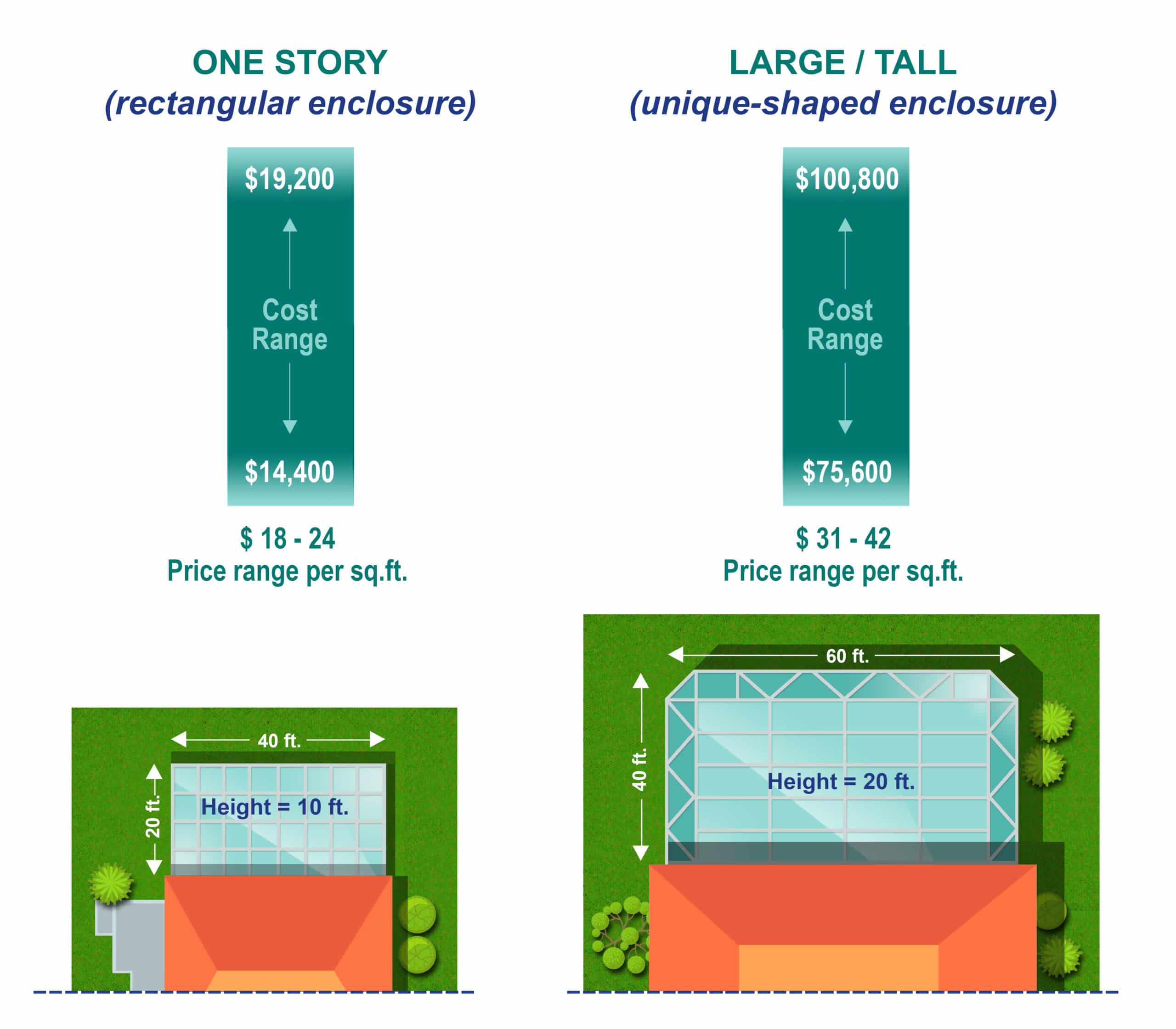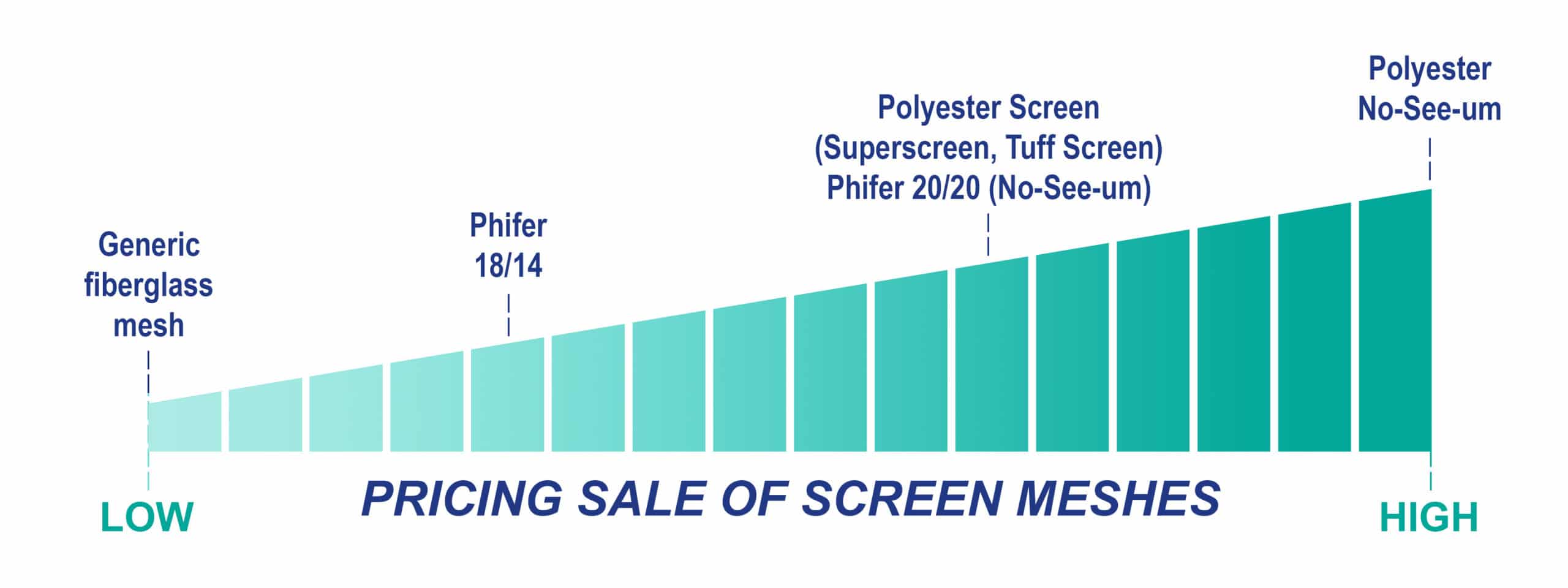If you’d like to be able to enjoy your pool or patio you’re around, bug free, and free from debris, a screen enclosure is your structure.
In the south, particularly Florida, screening closures basically necessary
So what will a pool screen enclosure cost you?
As a rule of thumb a one story, rectangular screen enclosure with a screen roof, (pool cage style) Will cost $18-$24 per square foot. Considering the size of a 20 x 40 screen enclosure at 800 ft.², that would put you into the range of $14,400 - $19,200.
While that square footage price range would you compass most single-family residential homes, screen closures can go much higher for larger sizes, and non-rectangular shapes. You could plan for additional 50% in cost for each story of height.
A two story enclosure that projects (out from the house) 40 feet, is 60 feet wide, 20 feet tall, and has to connect to a house eave at two different points would go into a whole nother ballpark of pricing. We would expect this to cost $31.5- $42 per square for a total project ranging from $75,600 - $100,800.

Screen Enclosure Cost Factors
As you can see from above, size, height, and shape are the largest factors. As those factors increase more materials are needed and labor is needed. As pool screen enclosures require structural members, larger or thicker members are required to accommodate larger spans, thus increasing costs exponentially.
Now within each scope of project size are a few different options that you can choose from that will impact whether you're on the low side or the high side of the cost scale.
First There is screen choice.

On the very low side of that will be generic fiber glass 18/14 mesh. Generics can be of varying quality, so we recommend going with Phifer mesh as a starting point which has an established reputation for strength and quality among fiberglass screens. Going up from there are the polyester screens with major brand names of Superscreen, and Tuff Screen. The polyester mesh is about 3x stronger and more resilient to atmospheric conditions than major fiberglass brands. It is a worth consideration if you are planning on staying in the home as you will recoup the costs by not having re-screen or replace screens.
Both fiberglass and polyester meshes are available a standard weave (18/14 or comparable) and a denser weave intended to keep out smaller bugs. You'll hear the denser weave referred to as "no-see-um screen", and it does cost a premium.
Then there are the fasteners.
Fastners are vital to the construction and longevity. As they age they become weaker thus reducing structural integrity and potential for failure under wind pressure.
Low grade galvanized steel screws are the lowest cost option, but they can lose up to 70% of their initial strength within 1 year of exposure to the Florida element. For that reason we recommend choosing either a stainless steel fastener or Nylotec fastener. Nylotec fasteners were developed specifically for use in Florida pool screen enclosures and have been tested to prove their resilience.
That should give you an idea of what to expect in pricing.
Let me share a few other things you should know before getting estimates For A Screen Enclosure.
1. Pool screen enclosures are engineered to meet the specific wind code specified by the Florida Building Code. In most areas that is 150mp but in some areas it may be as low as 100mph, or 180mph for coastal regions in South Florida. Keep in mind that contractors will always bid the project to meet the minimum requirements. If you want a pool screen enclosure that is strong ask your contractor about it, and expect a price increase.
2. Pool screen enclosures require a permit & engineering. Whether you're replacing an existing enclosure or getting a new structure, a permit will need to be issued by the local building department and inspected. This ensures that your structure is build to the structural code requirements. It is not uncommon to find homeowners go with the lowest bid, then find out that contractor did not get a permit and ultimately they are stuck in a situation where the enclosure must be removed and rebuilt.
